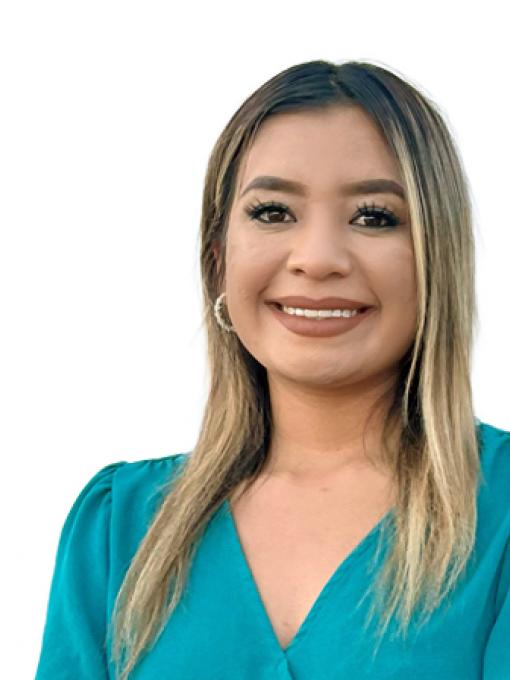I was first introduced to FCNL in April 2019 during Spring Lobby Weekend, which focused on immigration reform. I absolutely loved the experience of meeting young people who were just as passionate as me to lobby on the critical immigration issues that need policy change.
From that experience, including several years of advocating with United We Dream and New Mexico Dream Team, I knew I wanted to engage in grassroots immigration policy. I became an Advocacy Corps organizer in 2020-2021. Now, I am the program assistant for the Migration Policy Program at FCNL.
My passion for organizing and advocacy for immigrant and human rights are rooted in my personal experience, starting at a young age.
I was born in Chihuahua, Mexico, and arrived in the United States as a child with my family. Española,some 30 minutes from Santa Fe, New Mexico, became our new home. I knew my life would not be easy as I began a new path as an undocumented youth who couldn’t help but fear being separated from my family and the only place I call home.
But as a person of faith, I was given the strength and hope to get through the toughest storms of life. Many limited opportunities were taken away because of my status, but I decided not to be limited by the imposed restrictions due to my status.
Growing up in an undocumented family meant growing up fast, facing many injustices at a young age, learning a second language, and translating for my parents. It meant picking up adult responsibilities earlier in life. Education became my pathway to protect myself and my family best.
Growing up in an undocumented family meant growing up fast, facing many injustices at a young age, learning a second language, and translating for my parents.
Being an undocumented Latina and a first-generation college student in my family nurtured my resilience by engaging and fighting for human rights and humanity overall.
Today, I live in Washington, D.C., as a Deferred Action for Childhood Arrivals (DACA) recipient. My status is temporary—and inadequate—which is why a pathway to citizenship is critical. A pathway to citizenship would mean a permanent solution and liberation for millions of people like me who live with fear and uncertainty every day. It would mean I can fully integrate my daily life, plan for my future, and access limited resources like education and healthcare.
A pathway to citizenship means I can bloom without limits from the seeds my parents once planted when arriving in the United States.
My experiences have significantly influenced and clarified my future aspirations to use law as a tool to advance a humane, just, and inclusive U.S immigration system. I am privileged to work in a faith-based advocacy that lifts my vision of a humane-centered and moral society.
My policy platform represents and centralizes equity and the voices of impacted communities and their lived experiences.
Engaging with FCNL’s network, creating meaningful relationships with members of Congress, and partnering with coalitions have allowed me to see firsthand how lawyers merge the legal and representation expertise with policy advocacy.
FCNL’s approach to migration justice complements my commitment to immigration reform as an advocate and a future immigration lawyer.
Close to my heart, I will continue to stress that our undocumented neighbors deserve to be honored and recognized as something we all are: Americans— individuals who work hard and contribute to this country and, most importantly, live each day as resilient, courageous human beings.I am very hopeful that now is a historic moment to establish long-overdue justice for our immigrant communities, asylum seekers, and refugees.

